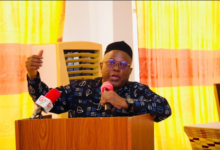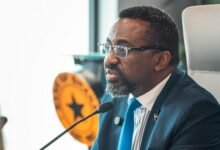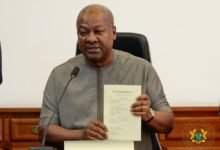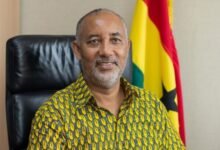Doba-Kandiga land conflict… KassenaNankana Assembly expends GH¢693,365 in 18 months

The Kassena Nankana Municipal Assembly in the Upper East Region has spent GH¢693,364.89 between April 2020 and September 2021, on security personnel to maintain law and order, following the conflict between the people of Doba and Kandiga communities over land.
This had resulted in a financial burden on the assembly and other institutions responsible for keeping peace in the municipality, according to a project document made available to the Ghanaian Times.
According to the WANEP-Ghana National Early Warning System 2021 document, there are nine documented conflicts on religion, land tenure and rights, chieftaincy, and herder-farmer in the municipality.
“These conflicts are multifaceted and often caused by deep-seated insecurity stemming from economic inequity, locational disadvantages, changing environmental and ecological conditions, and the various ongoing societal transformations,” the report said.
“They have resulted in disruptions and dislocation of community life, thus posing threats to national security, peace, and prosperity. These conflicts have damaged relationships between people and identity groups,” it added.
Consequently, a sensitisation had been carried out in the municipality to create awareness and inculcate in the people on the need to embrace peace, use Alternative Disputes when disagreement ensued under the USAID-funded COVID-19 Agriculture Governance Resilience and Economic Empowerment (AGREE) Initiative Community sensitisation on Peace building and Alternate Dispute Resolution (ADR) Mechanisms.
The objective of the project implemented by the Centre for Social Mobilisation and Sustainable Development (CENSODEVT) was to reduce the risk of inter-communal violence and mitigate the impact of conflicts at the local level through dialogue and local conflict-management mechanisms.
It was also meant, to among others, build the capacity of stakeholders and community members in peacebuilding and conflict resolution through participatory training and organisational learning.
The two-day sensitisation programme drew 339 participants, including chiefs, elders, opinion leaders, community members (i.e. women, men, youth, marginalised and vulnerable groups,) from Natugnia and Punyoro communities.
The topics discussed included conceptualising conflict, conflict resolution, conflict avoidance, conflict settlement, and conflict management.
Other areas discussed were conceptualising ADR mechanisms, structures at the community, district, regional and national levels, and early warning signs and avenues for reporting them.
In his concluding remarks, the Chief Executive Officer of CENSODEV, Braimah Sanjage thanked AGREE for providing resources for the sensitisation programme and asked for more resources to implement the sensitisation programme in other conflict prone communities.
He tasked community members to be good ambassadors of peace and thanked participants for their participation.
The Natugnia Chief, Naba Ananbuno Ayangba Assarh II speaking on behalf of his other colleague from and Punyoro said the sensitisation programme had strengthened the capacity of local peace actors and community members to respond, prevent and manage conflict, as well as promote reconciliation in their communities.
Present were Pwoawuvi Joseph Weguri, a facilitator and Moses Suuta, Monitoring and Evaluation Officer of the West Africa Network of Peace-building-Ghana.
BY SALIFU ABDUL-RAHAMAN







